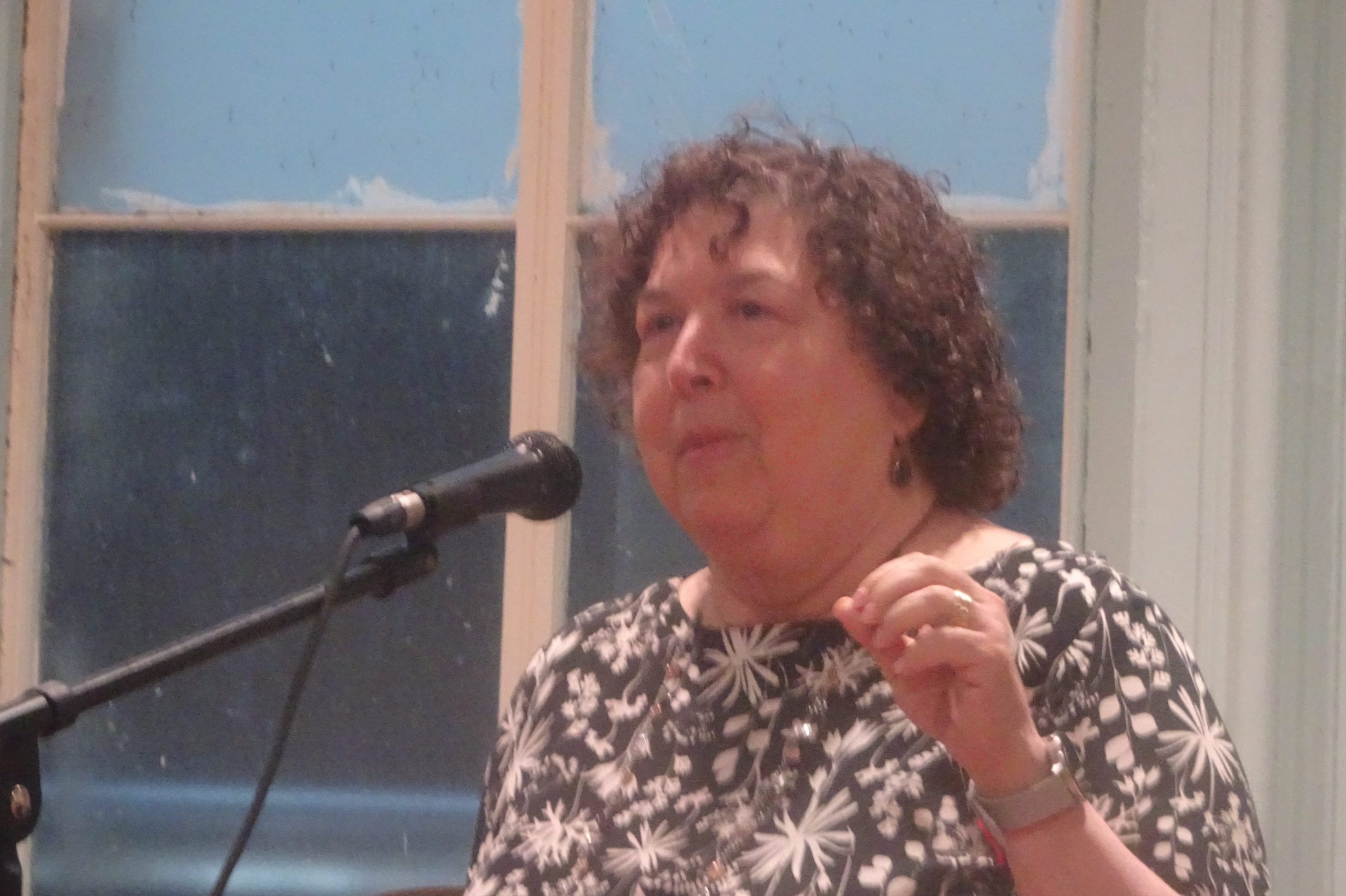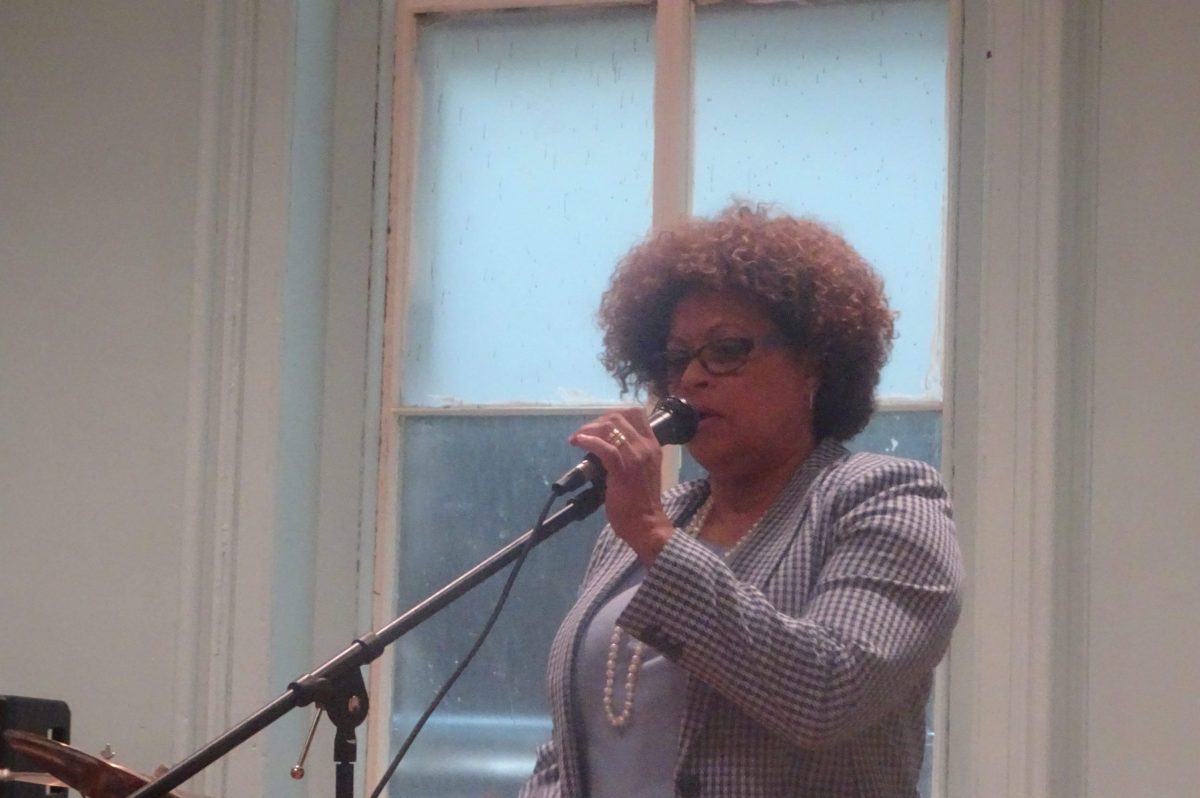When Judge Carol Sharpe was asked what she plans to do to make New York courts more diverse, she simply raised her hand and said, “Well, here I am.”
Carol Sharpe, a Jamaican immigrant, began her legal career as a lawyer in the District Attorney’s office. For the next few years, she prosecuted several homicide cases. Her work which involved listening to witness testimony, helped her learn how to work with people and develop relationships with her constituents. In 2013, she was elected to serve on the Manhattan division of the New York City Supreme Court.
Only in America, she said, could she see such a story play out.
“We are all immigrants, and together we make America great,” said Sharpe. “And I’m happy to live in New York City, because it’s only in New York City that somebody like me could become a judge.”
Sharpe was just one of the sixteen judges who made their case at last night’s New York State Supreme Court candidate forum.
On Monday, the Downtown Independent Democrats hosted a forum for the candidates vying for the two vacancies in the New York State Supreme Court. The forum took place from 6-9 p.m. at the Church St. School for Music and Art, 41 White St.
The candidates in attendance were as follows: NYC Civil Court Judges Sabrina Kraus, Carol Sharpe, Shawn T. Kelly, Ta-Tanisha James and Dakota Ramseur; and Supreme Court Incumbents Paul Goetz, John J. Kelley, Martin Shulman, Louis Nock, Lisa Sokoloff, David Cohen, Jennifer Schecter, Margaret Chan, Lyle Frank and Melissa Crane.
Each candidate recounted their upbringing and how their lives lead them towards the field of law. David Cohen’s path began one night during his childhood, when his father brought him along to a court hearing to dispute a parking ticket. Both of his parents had lost their hearing in an accident, so Cohen was often tasked with helping them communicate with others.
“Before I know it, I’m standing next to my dad in front of the guy with the robes on,” said Cohen. “The judge can’t communicate with my dad, so he starts asking me questions. So I’m answering and I’m advocating and I’m telling him what my dad told me, and he listens, and then he convicts my dad.”
Although he “lost” the case, Cohen said that the experience taught him that every case, no matter how small, has consequences. As a judge, he’s gone out of his way to “demystify” the process for new litigants.
Meanwhile, Paul Goetz found his inspiration a bit later. It was his volunteer experience with the Legal Aid Society as a law student that sparked his desire to become a judge.
“During my second year, I worked at the Legal Aid Society in the Civil Appeals and Law Reform unit,” said Goetz. “I saw what a direct impact a judge’s decision has on peoples’ lives.”
Although the candidates’ stories varied greatly, there were a few common threads that united them. Several expressed a desire for more diversity in New York’s court system, arguing that, as a nation of immigrants, diversity is our strength.
As a judge, Lisa Sokoloff has gone out of her way to help underrepresented minorities trying to break into law.

“The first two out of the three people I was able to hire while I was practicing were African-American women,” said Lisa Sokoloff. “Both of those women became partners at law firms. One of them is making twice as much money as I do, and paying it back.”
They also shared a desire for increased transparency. Sabrina Kraus claimed that she’s published countless decisions for precisely this reason.
“During my ten years in housing court, I published hundreds of decisions,” said Kraus. “I daresay that if you do any legal research on any area pertaining to tenant law, you will come up with one of my published decisions. I publish a lot because I think that transparency is critical to the public’s confidence in the court system. You should know what we’re doing, when we’re doing it and how we’re ruling.”
The vote to fill the vacant Supreme Court spots will take place at the next Judicial Convention on Monday, Aug. 12.









![U.S. Rep Jerrold Nadler [photo provided by Daniel Schwarz]](https://politicsny.com/wp-content/uploads/2021/02/0fdf7a71-ba8f-4ea3-a0fd-0fbd6268f443-e1586275822452.jpg?w=700)



